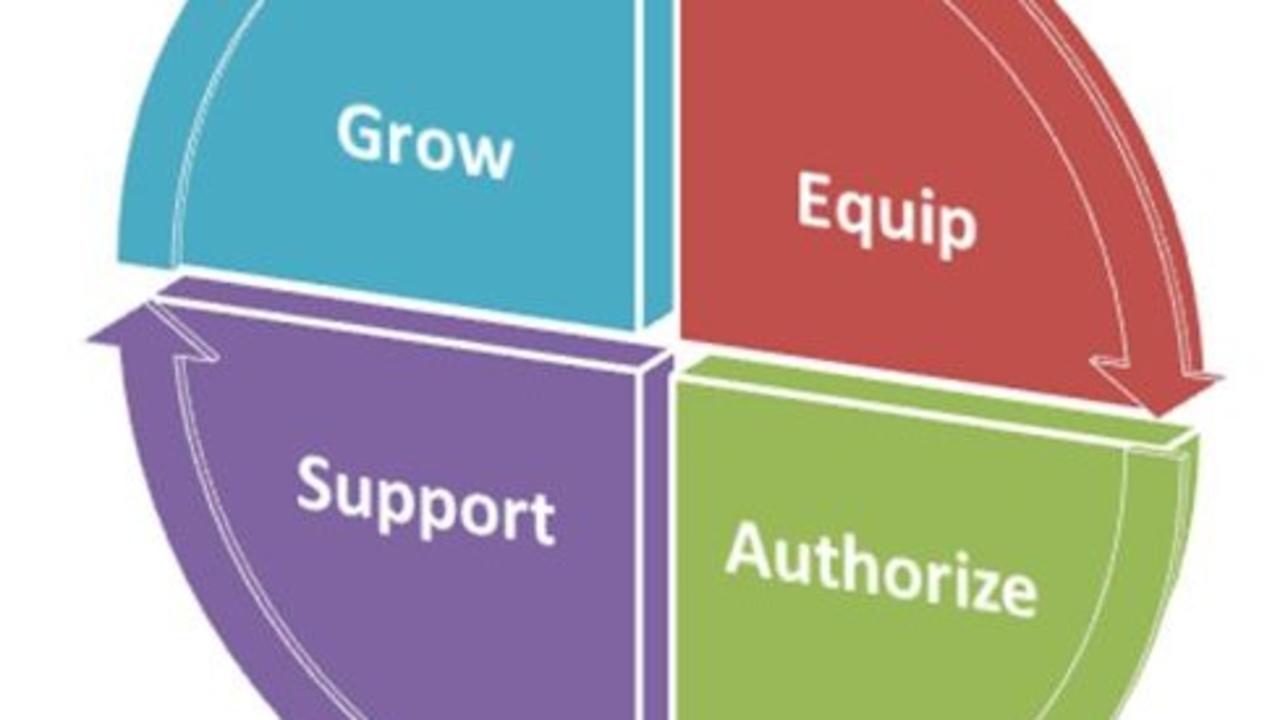Embracing Your Shadow: Lessons from The Dark Side of the Light Chasers

By William F. Nazzaro, founder of The Time to Lead Institute, leadership expert, performance and executive coach, and trusted advisor to leaders navigating transformation and cultural change.
Some books don’t just land in your lap—they grab you and refuse to let go. In 2024, that’s what happened when I picked up The Dark Side of the Light Chasers by Debbie Ford.
I’ll be honest—I didn’t stumble upon this book alone. My coach and mentor, Paul Martinelli, told me, “You need to read this.” He had that look that said, Trust me, this one will mess with you—in the best way possible.
I wasn’t prepared for what followed.
This book challenged and wrecked me.
And I’m not exaggerating. It took me months to get through, which is crazy because I can usually knock out a book in a week or so. But this one? It wouldn’t let me speed through. Every chapter was like a mirror, reflecting things I wasn’t ready to see. Some days, I had to put it down, take a deep breath, and say, Not today, Debbie.
But...
Why Essentialism by Greg McKeown Should Be Your Next Read

By William F. Nazzaro, founder of The Time to Lead Institute, leadership expert, performance and executive coach, and trusted advisor to leaders navigating transformation and cultural change.
Have you ever felt like you’re running in circles? You’re busy—so busy you barely have time to think—but at the end of the day, you wonder what you actually accomplished. I’ve been there. If this resonates with you, you need to pick up Greg McKeown’s Essentialism: The Disciplined Pursuit of Less.
This book made my top two reads of 2024 for a reason: it’s not just a book. It’s a call to action to simplify your life and align your choices with what truly matters. Let’s dive into why Essentialism hit home for me and how it can transform your life, too.
What Is Essentialism Really About?
At its core, Essentialism is about getting crystal clear on what’s most important—and unapologetically letting go of everything else. It’s about doing less but doing it better. McKeown doesn’t sugarcoat it: most...
Tech’s Dirty Secret: The Emotional Intelligence Deficit That No One Talks About

By William F. Nazzaro, founder of The Time to Lead Institute, leadership expert, performance and executive coach, and trusted advisor to leaders navigating transformation and cultural change.
If you have ever worked in or collaborated with an Information Technology (IT) department, there’s a not-so-little secret: their emotional intelligence (EI) is shockingly low. This isn’t some minor flaw. It’s threatening the core of the tech industry’s productivity, creativity, sanity, and ultimately, their usage and employment. Yet, bizarrely, managers keep turning a blind eye to this festering issue. It’s time to drag this problem into the spotlight and dissect why this negligence is irresponsible and downright dangerous.
The Emotional Intelligence Deficit
Let’s get real: many tech professionals are masters of logical thinking, problem-solving, and technical wizardry but are hopelessly inept when it comes to emotional intelligence. EI, which includes self-awareness, empathy, and people skills,...
Respect at Work: The Business Game-Changer You Didn't See Coming

By William F. Nazzaro, founder of The Time to Lead Institute, leadership expert, performance and executive coach, and trusted advisor to leaders navigating transformation and cultural change.
In the relentless hustle of business, productivity, and efficiency often steal the spotlight. But Christine Porath’s TED Talk, “Why being respectful to your coworkers is good for business,” flips the script. Porath, a professor at Georgetown University and a workplace civility guru, explains why respect and kindness aren’t just soft skills—they’re critical to business success.
Her evidence-backed insights challenge the usual corporate playbook and offer a fresh perspective on what it takes to build a thriving workplace. Let’s dive into the key points from her talk and see how respect can boost your bottom line.
The Hidden Costs of Being a Jerk
Porath kicks things off by laying bare the hidden costs of workplace incivility. Her research shows that disrespect leads to disengaged employees, lower p...
Wake Up, Leaders: Your Approach to Motivation is Backfiring

By William F. Nazzaro, founder of The Time to Lead Institute, leadership expert, performance and executive coach, and trusted advisor to leaders navigating transformation and cultural change.
Welcome to the jungle of corporate motivation, where the strongest survive and the weak...well, they just quit. So, let’s dive into the murky waters of motivation and leadership. Whether you’re an emerging leader finding your footing or an established leader looking to refine your approach, the harsh reality is that motivation is an inside job. You can’t inject it into your team like a caffeine shot on a Monday morning.
Motivation: The Myth of External Drive
Motivation is personal. It’s internal. You can’t package it up and hand it out with paychecks. This brings us to a brutally honest truth: You don’t motivate people. You hire motivated people. That might sound dismissive, but once you understand that motivation is not yours to give, it starts to make sense.
Creating the Right Environment: A...
Lead by Letting Go: Why Empowerment Wins Every Time

By William F. Nazzaro, founder of The Time to Lead Institute, leadership expert, performance and executive coach, and trusted advisor to leaders navigating transformation and cultural change.
In the dynamic world of leadership, mastering empowerment is essential for both new and seasoned leaders aiming to propel their teams to success. This article delves into the lessons from Bob Maksimchuk’s Concepts in Leadership sessions, examining how leaders at various career stages can utilize empowerment to boost team cohesion and drive organizational development.
Defining Empowerment in Modern Leadership
Empowerment in leadership transcends the mere delegation of tasks; it involves instilling confidence and authority in team members to make decisions and take action that aligns with the organization's goals. This process is crucial for nurturing a proactive workforce and cultivating an environment where innovation thrives.
Empowerment Strategies for Emerging Leaders
Emerging leaders often...
The 7 Critical Things Leaders Must Give Their Teams During Times of Crisis

Leaders need to pivot in times of crisis and pivot quickly. Your focus needs to be on getting your people through the difficult times. There are seven critical things you need to give to your teams.
- STRENGTH: You must be strong and steady without bravado or arrogance. People look to their leaders in times of trouble. Remember, you set the tone.
- TRUTH: You must be truthful and acknowledge the problem at hand. Do not minimize or inflate the situation. They need to hear the information you have regarding the crisis. Lack of information and openness breeds fear. Be open and transparent. Share the information you have with them.
- OPENNESS: You must be human. Superheroes are for movies and comic books. By showing your humanity you show your credibility. Tell them how the crisis has impacted you personally. Share your own concerns with them. This demonstrates that you are in this with them.
- EMPATHY: You must express empathy for your team. Show that you understand their situatio ...
Appreciation Is Life

I was recently looking through one of my favorite classic books How to Win Friends & Influence People by Dale Carnegie. I was very fortunate to have had the opportunity to participate in the Dale Carnegie Program and then to be an Associate Instructor. But this time, when looking thorough the book again, I noticed that 3 of the 27 principles that Carnegie discusses all deal with giving appreciation.
I was surprised that I hadn’t noticed it before because two of my favorite quotes center on appreciation. One from Mother Teresa “There is more hunger for love and appreciation in this world than for bread.”
And the other from Robert Cavett “Three billion people on the face of the earth go to bed hungry every night, but four billion people go to bed every night hungry for a simple word of encouragement and recognition.”
Note that these two quotes put both food and appreciation on the same level of significance. Food is critical to life. Without food the body dies. Without apprecia...
The Empowerment Cycle

By Bob Maksimchuk
Empowerment is a word we hear bandied about freely. But what does this mean? Most people struggle to explain it. When asked the more important question of how you empower people, you usually hear a very short, shallow answer such as you just give them a challenging assignment. Either that or you hear crickets.
However you want to define it, it’s more important to understand how you empower people. Empowerment is a process and this process has four mandatory components. If any of these are missing, the result will simply be failure. Here you see the Empowerment Cycle.©

It’s the repetitive, iterating, full cycle process for enabling people to incrementally increase their autonomy so that they can independently and responsibly achieve their goals. Now let me repeat that.
...Empowerment is the repetitive, iterative, full cycle process for enabling people to incrementally increase their autonomy so that they can independently and responsibly achieve their goals.
The Downward Spiral of Leadership

By Bob Maksimchuk
You don’t have to ask many people. Everyone is busy. But as a leader, you don’t have that as an excuse. It has been said that managers keep the business running, but leaders move the business forward. If you don’t think you have the time to move the business forward, the business will stagnate. Be stagnant for too long and the business will lose ground and be overtaken by its competitors.
As a leader, you must use your time and teams most effectively. A simple first step is to leverage your team’s capabilities. You must enable your teams to receive delegated work from you. And here is where many leaders don’t leverage their teams. The reason many leaders give: I “don’t have the time”.
That begins the “Downward Spiral of Leadership”. If you don’t think you have the time you don’t delegate. If you don’t delegate the team’s abilities don’t improve. If your teams can’t do the work (or if you think only you can do it better and faster) you jump in. When yo...

